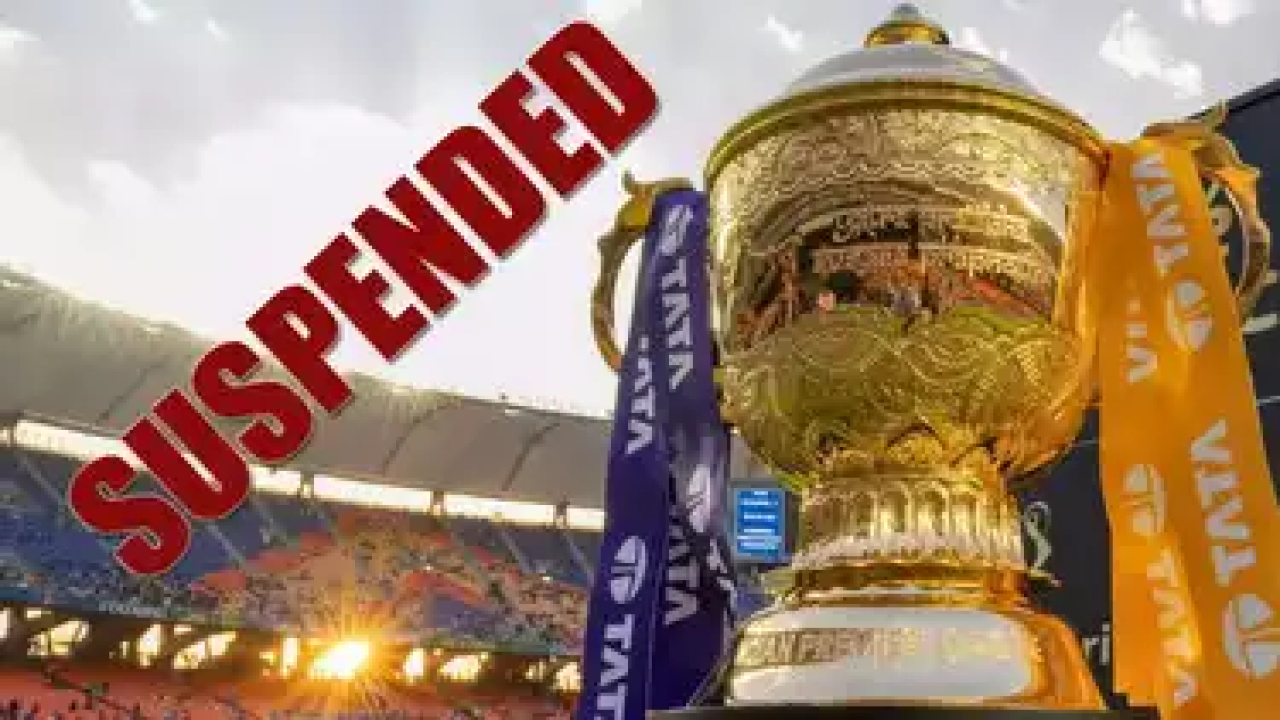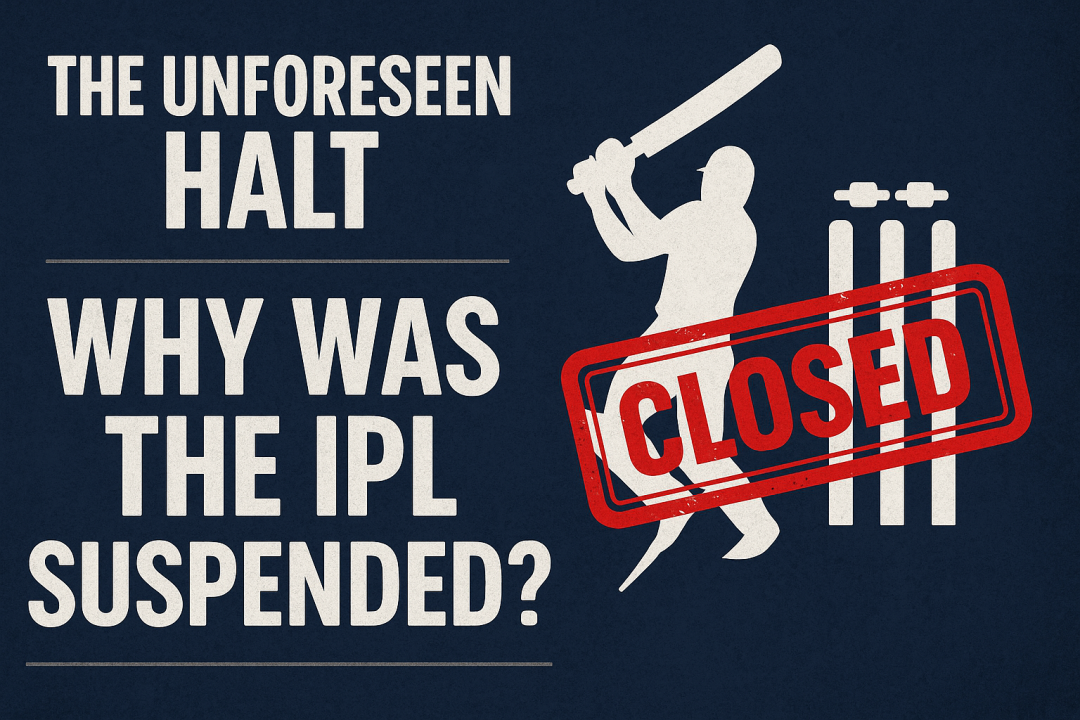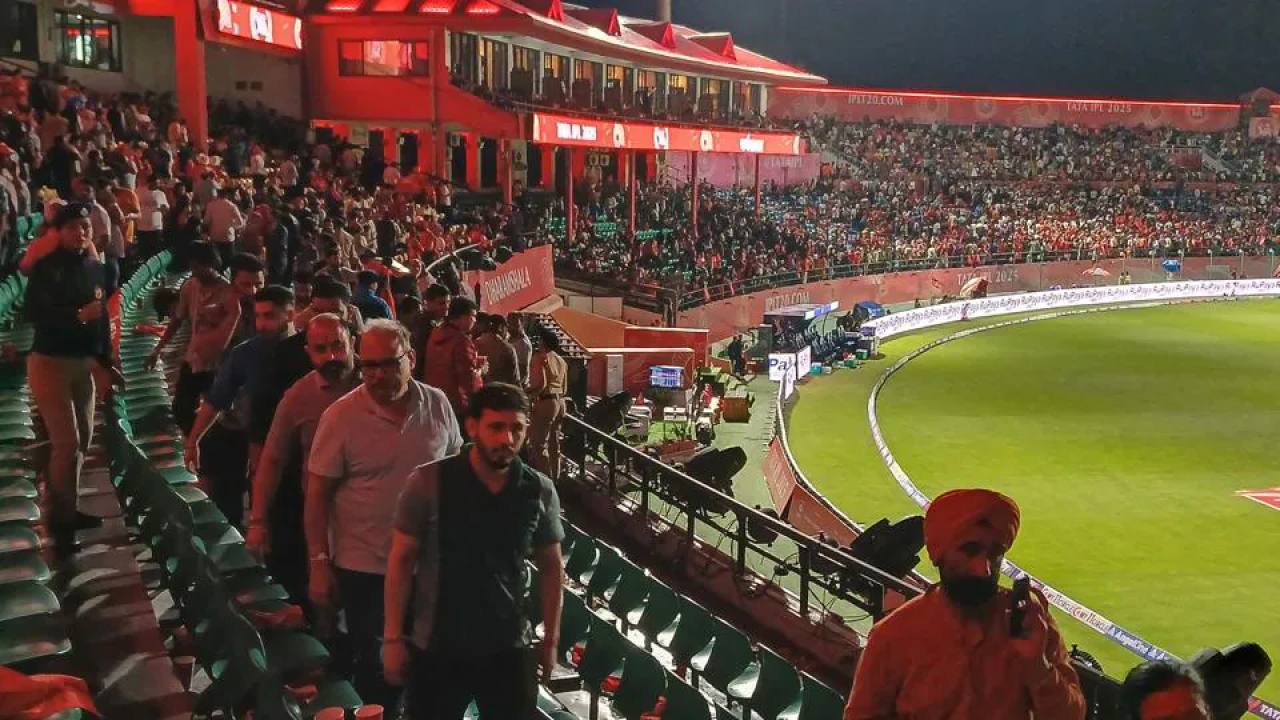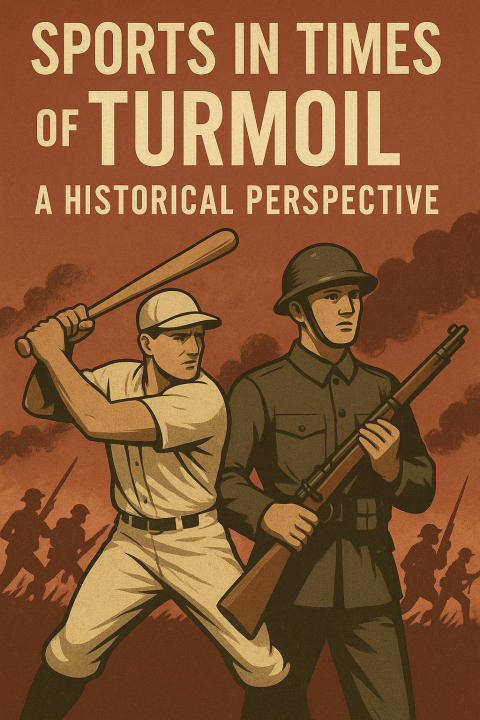
This blog explores the suspension of the IPL 2025 due to geopolitical conflict, examining its emotional, economic, and historical impact while reflecting on the future of sports during times of crisis.
Introduction

The Indian Premier League (IPL) is not just a cricket tournament—it's a nationwide phenomenon that captures hearts, fuels rivalries, and becomes the centerpiece of summer evenings across the globe. Known for its dazzling mix of sports and entertainment, the IPL has become a symbol of unity and celebration in a diverse country like India. However, in 2025, the cheers have fallen silent, not because of rain or pandemic, but due to a far more sobering cause—armed conflict. The tournament's suspension mid-season marks a rare moment when sport must yield to the grim realities of national and international tensions. This blog explores the various dimensions of this decision and what it means for fans, players, and the future of sports in such uncertain times.
The Unforeseen Halt: Why Was the IPL Suspended?

The sudden decision to suspend the IPL shocked fans and stakeholders alike. The tournament, which had already begun gaining momentum, was halted due to escalating regional conflict that made security and logistics untenable. Authorities cited national security concerns, limited availability of venues, and the need to prioritize emergency resources as key reasons. In times when a country faces external or internal strife, the infrastructure required to host such a mega event—ranging from security personnel to transportation—becomes unavailable or inappropriate to deploy for entertainment purposes. While fans eagerly await the action on the field, real-life battles leave no room for games. The suspension is a stark reminder that sport, despite its power to unify and uplift, cannot exist in isolation from political realities.
The Emotional Impact on Fans and Players

For fans, the IPL is more than just cricket—it’s an emotional journey filled with excitement, nostalgia, and regional pride. The suspension left a void in the hearts of millions who look forward to these matches as a form of escape, joy, and celebration. For players, both domestic and international, the halt meant disruption of routines, goals, and financial stability. Several players took to social media expressing disappointment, but also solidarity with the greater need for peace and stability. Many shared messages of hope and resilience, highlighting that while cricket may be paused, the spirit of sportsmanship remains alive. The IPL has always been a stage for human stories as much as athletic excellence, and the suspension has only added a new, sobering chapter to its history.
Economic Ripples: Who Bears the Cost?

The IPL is a billion-dollar enterprise. Its suspension affects not just the BCCI and franchise owners but also hundreds of businesses that thrive around the tournament. From sponsors and advertisers to local vendors, broadcasters, event managers, and hospitality sectors, the economic ripple is enormous. Advertisers who had invested heavily in campaigns are now in a limbo, and broadcasters stand to lose millions in ad revenue. Small-scale vendors, such as stadium hawkers and merchandisers, perhaps bear the worst brunt. The financial setback reverberates beyond the cricket field, demonstrating how intricately sports are woven into the economic fabric of the country. While some companies may absorb the loss, for others, the blow may be lasting.
Sports in Times of Turmoil: A Historical Perspective

This is not the first time sports have been disrupted by conflict. From the cancellation of the Olympics during World War II to the relocation of matches due to political unrest in various countries, history is dotted with examples of sport bowing to larger socio-political forces. In India itself, the IPL was previously relocated to the UAE in 2009 due to general elections. But a complete suspension mid-season due to armed conflict or national emergency brings a different level of gravity. It forces reflection on the fragility of peace and the interconnectedness of global events. Sport has often been a healer post-conflict, but during the storm, it must step aside to allow more pressing battles to be fought.
What Lies Ahead: The Future of IPL and Indian Sports

The suspension of the IPL poses critical questions about the future of sports in conflict-sensitive regions. Will the tournament resume later this year? Can India continue hosting global events during uncertain times? These questions linger without clear answers. The BCCI and Indian authorities have assured that the tournament will resume "when the time is right," but that timing is contingent on factors far beyond the cricket pitch. Moving forward, organizers may consider stronger contingency plans, including flexible schedules, alternative venues, and better risk assessment strategies. For now, the hope remains that peace will prevail and the sound of cheering crowds and bat meeting ball will once again fill the air. Until then, the suspension stands as a symbol—not of defeat—but of priorities rightly placed.
Conclusion

The suspension of the IPL reminds us that while sports have the power to distract, inspire, and bring joy, they are not immune to the larger forces that shape our world. The conflict that led to the tournament's pause is a sobering reminder that peace and security are prerequisites for celebration. As fans, we may feel disappointed, but we must also understand the gravity of the times and respect the decisions taken in the interest of national stability. Let us hope for a swift resolution to the crisis, not just for the sake of cricket, but for the lives and futures affected by it. When the IPL returns, it will do so not just as a game, but as a celebration of resilience, unity, and the enduring spirit of sport.